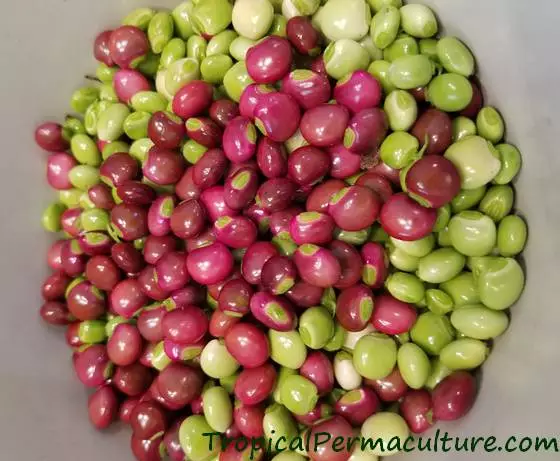
DAR ES SALAAM, July 15 (NNN-DAILYNEWS) — TANZANIA has ascended to the top of the global pigeon pea export market, thanks to the government’s strategic interventions in agriculture, including strengthening marketing systems and providing subsidised fertilisers and quality seeds.
The country has firmly established itself as the world’s leading exporter of pigeon peas, following a remarkable surge in its annual export volumes.
In just one year, the country recorded an 86 per cent increase in shipments, a significant milestone in its agricultural trade history.
According to data from the United Nations’ International Trade Centre’s Trademap platform, Tanzania exported over 350,000 tonnes of pigeon peas last year, a sharp rise from the 188,405 tonnes exported the previous year.
The export earned the country 240 million US dollars (about 622bn/-), a record-breaking milestone for Tanzania.
Myanmar was the second-largest exporter, with 289,046 tonnes worth 315 million US dollars (over 816bn/-). Other top exporters included Sudan (129,441 tonnes), Kenya (69,335 tonnes), India (35,724 tonnes) and Malawi (31,307 tonnes).
Speaking to ‘Daily News’ over the weekend, Permanent Secretary in the Ministry of Agriculture, Gerald Mweli, attributed Tanzania’s remarkable export performance to the government under the leadership of President Samia Suluhu Hassan’s agricultural reforms, which have significantly lowered production costs and increased yields.
“The government’s provision of subsidised fertilisers and the use of electronic marketing systems like the Tanzania Mercantile Exchange (TMX) have boosted farmer confidence and increased production,” Mweli said.
He noted that the TMX platform allows farmers, traders and exporters to access domestic and international markets, ensuring fair prices and timely payments.
“The electronic system motivates farmers by assuring them of instant cash after sales,” he added.
When asked why Myanmar earned more revenue despite exporting fewer tonnes, Mweli explained that global market fluctuations and differing harvest seasons led to price variations.
“Myanmar sold at higher prices, while Tanzania’s farmers sold during a period of lower global prices,” he said.
To maintain momentum, Mweli revealed that the ministry plans to distribute 200,000 tonnes of subsidised fertilisers in the upcoming farming season beginning this August, benefiting all farmers, including pigeon pea growers.
“This marks the third consecutive year of the government offering subsidised fertilisers, which has led to a notable increase in farm productivity,” he said.
He also noted ongoing efforts to create a conducive environment for private sector investment in agro-processing and value addition, which would strengthen the entire agricultural value chain.
Commenting on Tanzania’s export milestone, Tanzania Pulses Network (TPN) National Coordinator, Zirack Andrew, called it a major achievement, especially considering Tanzania’s geographical distance from India, the world’s leading pigeon pea market.
“For the first time, Tanzania has outpaced Myanmar, which shares a border with India and has historically dominated this market,” he noted.
However, Andrew cautioned against over-reliance on a single market.
“In 2023, India imported 99.6 per cent of Tanzania’s pigeon peas, up from 85 per cent just a few years ago. This level of dependency is risky and unsustainable,” he said.
He advised the government to diversify export markets to reduce vulnerability and expand opportunities. Other importers in 2024 included Pakistan and the United Arab Emirates (UAE), while China and Belgium each imported around 0.1 per cent of Tanzania’s total pigeon pea exports, or approximately 200 and 175 tonnes, respectively.
Tanzania’s last year export volume nearly doubled compared to 2023, when 188,405 tonnes were exported.
In the years prior, export volumes were 108,257 tonnes (2020), 205,204 tonnes (2021) and 187,056 tonnes (2022).
According to Andrew, a key factor behind this growth is India’s stable import policy, which has increased Tanzanian farmers’ confidence in the market.
“India’s consistent demand, combined with attractive prices, has encouraged more Tanzanian farmers to cultivate pigeon peas,” he said.
A business expert from Saint Augustine University of Tanzania (SAUT), Dr Sylvester Jotta called on financial institutions to offer more support to pigeon pea farmers through credit facilities to further expand production.
He also underscored the critical role of agricultural extension officers in guiding farmers with science-backed decisions regarding land use, seed selection and agro-inputs to improve crop quality and yields.
Dr Jotta said that India’s large vegetarian population, which stands at over one billion people, ensures a stable and long-term demand for protein-rich pulses like pigeon peas, making it a strategic market for Tanzanian exports. — NNN-DAILYNEWS



